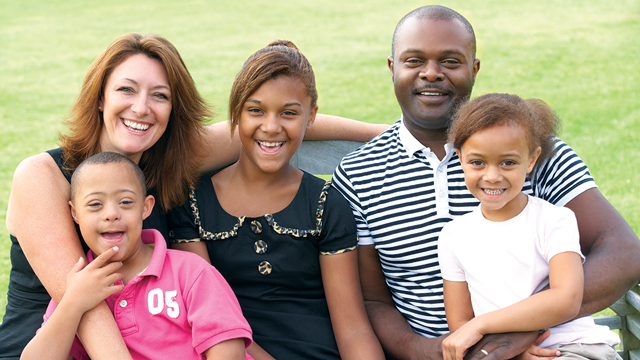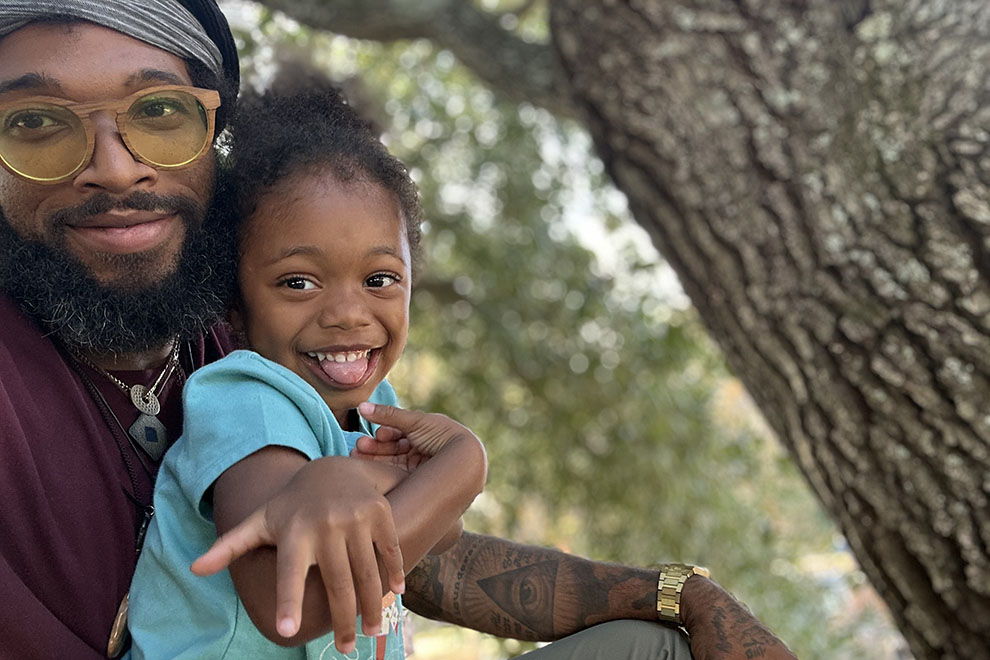
Our 4-year-old son is in a wheelchair and has several disabilities. His older siblings (eight and ten) carry a lot of stress and anxiety related to our situation, whether they admit it or not. We are often out as a family, and I need strategies for my older kids to help them manage questions and awkwardly long stares from others. Any feedback would be appreciated.

I have two younger siblings with disabilities, so this question resonates with me. All siblings of kids with disabilities must find ways to cope, and there is no one right way to do it. Sometimes there are negative consequences, like feeling isolated or wanting to be perfect to make up for the sibling’s challenges. There are also positive consequences, such as an increased capacity for empathy, a greater tolerance for individual differences, and a higher level of resiliency.
Siblings spend more time with each other in childhood than with anyone else. More importantly, siblings tend to be in the life of a family member with disabilities longer than anyone else, including parents. The impact of having a sibling with a disability changes over a lifespan – from feelings of anxiety about how their sibling’s disability will impact how they are perceived by their peers to worrying about what the future holds for their sibling with a disability.
Here are some tips to help you and your kids navigate the experience of growing up with a sibling who has a disability:
• Acknowledge siblings’ complex emotions. While much of the focus can be on the feelings of the child with disabilities, siblings also experience an array of complicated emotions which they may be reluctant to discuss. It is important to let them know that all their feelings – yes, even negative ones – are normal and okay to discuss with you.
• Carve out one-on-one time. Siblings of kids with disabilities need to know that the adults in their lives care about them as individuals. As a parent, find time to get some ice cream, go to a movie, or play a game with your kids who don’t have disabilities. Let them know you are there for them and that you care about their interests and dreams.
• Engage in age-appropriate discussions about their sibling’s disability. Talk to your children about the roots of their sibling’s disability. Explain their sibling’s medical equipment, tools, therapies, or treatments and how these help their sibling live their best life. Do not be afraid to use appropriate terminology and be sure they know the disability was not caused by something they did or something that is contagious. This honest conversation will also help your children discuss their sibling’s disability with others.
• Practice explaining. Children start having to explain their sibling’s disability to peers very early in their lives. Some friends or strangers might ask rude questions, engage in bullying behavior, or simply stare — leaving your child feeling embarrassed, angry, or guilty. Help your child practice possible responses. For example, if someone asks, “What is wrong with your brother?” Your child can say: “There isn’t anything wrong with him. He has cerebral palsy.” If an individual uses an unkind term, let your kids know that as hard as it is, they must not act out in anger. Instead, help them explain the situation: “It’s harder for my brother to learn new things or navigate without a wheelchair. He may do things a little differently, but that doesn’t make it okay to say mean things about him.” Lastly, for the stares, practice responding with phrases that invite connection, like, “My brother’s name is Philip, what is yours?” or “Do you want to know what my brother’s favorite things are?” Knowing what to say in these situations will increase your children’s confidence and may even educate those around them.
People react and respond in many ways to your child with a disability. Some are incredibly supportive and kind, while others can be dismissive and judgmental.
• Pick your battles. Sometimes, you might want to stand up for yourself and your child by correcting a negative comment or addressing a stare. If you can stay calm and speak clearly, this can feel very empowering. Making a graceful exit is completely appropriate, too. This doesn’t mean being a pushover, but a simple, kind response can defuse a person’s rude stare or comment.
• Take a moment before speaking. If you pause before responding to a hurtful comment or glare, you can say something constructive and positive. For example, “These days, most children born with Down syndrome grow up to lead happy, healthy, and productive lives.” By reacting this way, you are modeling for your son how to respond in similar situations.
• Learn more about siblings’ experiences. Panels, books, blogs, and films focused on siblings of those with disabilities are excellent ways to learn more about potential issues. Movies or shows I recommend include: The Other Sister, Front of the Class, and Atypical. Check out these book titles, too: Special Siblings, My Special Brother Bo, and Billy’s Sister.
Parents, caregivers, and professionals can effectively support siblings of children with disabilities by providing them with information; inviting them to share their ideas, questions, and concerns; and connecting them with peers who share similar experiences. I have learned that people only fully understand what they have experienced firsthand. Having siblings with disabilities shaped me in many ways and helped me become the person I am today. Because of them, I see the world through the eyes of possibility.





